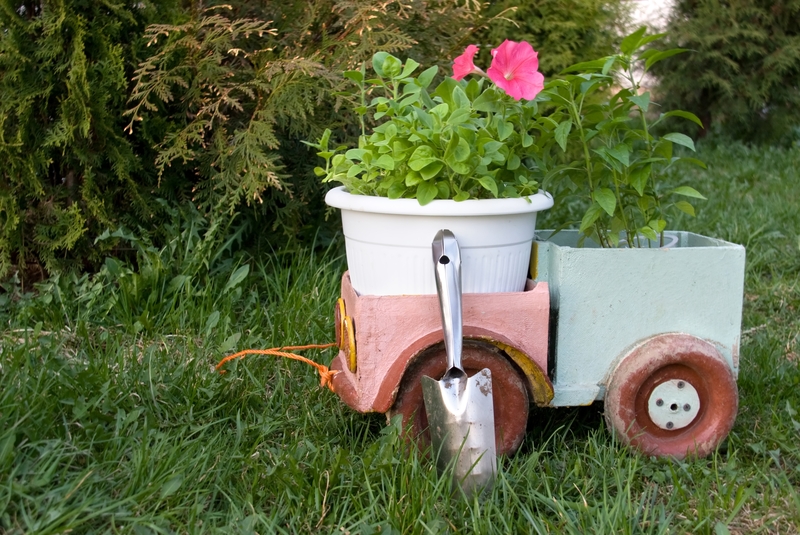Best Practices for Disposing PPE Waste Safely and Responsibly
The outbreak of global health crises, including the COVID-19 pandemic, has skyrocketed the use of Personal Protective Equipment (PPE) in healthcare, business, and everyday life. While PPE such as masks, gloves, gowns, and face shields play a crucial role in infection prevention, improper disposal of PPE waste poses environmental and public health risks. Responsibly managing PPE waste is essential for sustainability, safety, and regulatory compliance. In this comprehensive guide, we outline the best practices for PPE waste disposal and explore the impact of improper handling.
Understanding PPE Waste: Definition and Types
Personal Protective Equipment (PPE) includes a wide range of items designed to protect individuals from biological, chemical, and physical hazards. Common types of PPE frequently considered as waste include:
- Masks (surgical masks, N95 respirators, cloth masks)
- Gloves (latex, nitrile, vinyl)
- Face shields and splash goggles
- Disposable gowns and aprons
- Shoe covers and head covers
Used PPE may be contaminated with pathogens, bodily fluids, or hazardous chemicals, making their disposal a potential health risk if not managed correctly.

Why Proper PPE Waste Disposal Matters
Improper disposal of PPE waste has far-reaching implications:
- Public Health Risks: Used PPE can harbor infectious agents and spread disease if left in public spaces or handled incorrectly.
- Environmental Impact: The majority of single-use PPE is made of plastic materials, leading to pollution and harming marine and wildlife if not disposed of responsibly.
- Legal and Regulatory Compliance: Hospitals and organizations must adhere to waste management laws or risk penalties.
Environmental Consequences of PPE Mismanagement
The surge in PPE usage, especially disposable face masks and gloves, has contributed to an enormous increase in plastic waste. Masks discarded on streets, beaches, and in water bodies decompose slowly and can break down into microplastics--posing risks to ecosystems and bioaccumulating in food chains.
Best Practices for Disposing of PPE Waste Safely
Implementing best practices for responsible PPE waste management ensures the safety of workers, the community, and the environment. Whether in healthcare facilities, workplaces, or at home, everyone must follow guidelines for correct PPE disposal.
1. Segregation at Source
Proper segregation is the first and most critical step in safe PPE waste disposal:
- Use color-coded bins: Reserve clearly labeled bins for PPE waste. Use yellow or red leak-proof containers as recommended for infectious or hazardous materials.
- Separate from regular waste: Never mix used PPE with general waste or recyclables to prevent contamination.
- Communicate clearly: Provide signage and instructions for proper PPE disposal in workspaces, healthcare settings, and public places.
2. Safe Handling and Removal
- Wear gloves: Workers handling used PPE waste should wear gloves and, if needed, other PPE.
- Avoid touching the face: Minimize the risk of self-contamination during waste handling.
- Seal bags securely: Place PPE items directly into the bin, then securely tie or seal waste bags before removal.
- Do not compact: Avoid compressing PPE waste bags to reduce the risk of rupture or exposure.
3. Safe Transportation and Storage
- Limit movement: Collect PPE waste regularly and avoid accumulation at collection points.
- Use closed, leak-proof containers: Transport PPE waste in sealed containers to avoid spills and exposure.
- Store in designated areas: Hold waste in a secure, ventilated space prior to disposal.
4. Disposal Methods for PPE Waste
There are several effective methods for PPE waste disposal, depending on local regulations and available infrastructure:
- Incineration: High-temperature incineration destroys pathogens and reduces PPE waste volume. Used for medical waste or contaminated PPE in many countries.
- Landfilling: Non-infectious PPE waste can be disposed of in lined sanitary landfills that prevent leaching and environmental contamination.
- Autoclaving: Some facilities use high-pressure steam sterilization to render infectious PPE safe prior to disposal as general waste.
- Chemical Disinfection: In certain cases, chemical disinfectants may be used to decontaminate PPE prior to disposal or recycling.
Best Practices by Setting
Healthcare Facilities
- Follow local regulations: Adhere strictly to city, state, or national guidelines for handling infectious waste.
- Staff training: Train healthcare workers on proper PPE removal and disposal.
- Regular audits: Conduct checks to ensure compliance with waste management protocols.
- Sharps containers: Dispose of PPE contaminated with sharps in special puncture-proof containers.
Workplaces and Offices
- Place PPE bins at key locations: Entryways, bathrooms, and common areas should have designated PPE disposal points.
- Employee awareness: Educate teams about the environmental impact of improper PPE waste disposal and provide instructions.
- Outsource waste management: Work with licensed hazardous waste management services where necessary.
Public Spaces and Communities
- Install dedicated bins: City authorities should provide PPE waste bins in high-traffic locations.
- Promote responsible disposal: Awareness campaigns and signs are vital for encouraging individuals to dispose of PPE properly.
- Protect waste handlers: Waste collectors should be equipped with gloves and other PPE.
Home and Individual Users
- Double-bag PPE waste: Where possible, wrap used masks or gloves in a second bag before disposing of in household trash.
- Keep away from pets and children: Secure PPE waste to prevent accidental exposure.
- Wash hands: Always wash hands with soap and water or sanitize after handling used PPE.
PPE Waste Recycling Possibilities
Given the environmental burden of disposable PPE, recycling options are being explored for certain materials. While recycling PPE waste is challenging due to contamination risks, some initiatives show promise:
- Specialized recycling programs: Some companies collect and process clean, uncontaminated PPE items (mainly masks and face shields) for conversion into plastic lumber or energy.
- Research into biodegradable PPE: Manufacturers are developing compostable masks and gloves, which could mitigate landfill waste if properly collected and treated.
- Manufacturer take-back schemes: Participation in industry programs can close the loop for certain PPE waste streams.
Never place used, potentially contaminated PPE in standard recycling bins, as this creates cross-contamination risks and may endanger sorting facility workers.
Tips for Minimizing PPE Waste Generation
While proper disposal is necessary, reducing the quantity of PPE waste generated is equally important:
- Optimize PPE use: Follow guidelines to avoid overuse of disposable items when unnecessary (e.g., using gloves only for specific tasks).
- Choose reusable PPE: Where appropriate, opt for washable masks, gowns, or shields that can be safely disinfected and reused.
- Educate on correct use: Prevent misuse (such as double-gloving) which can increase waste without added protection.
Legal and Regulatory Considerations for PPE Waste Disposal
Many jurisdictions have implemented or updated waste management regulations to address the surge in PPE usage. Organizations are advised to:
- Consult local regulations: Adhere to standards set by authorities like the EPA, CDC, WHO, or local environmental agencies.
- Maintain records: Keep documentation of PPE waste generation and disposal, particularly for medical or hazardous waste streams.
- Partner with certified waste handlers: Use only accredited and licensed service providers for hazardous PPE waste disposal.

Innovations and Sustainability in PPE Waste Management
Growing awareness of the environmental impact of disposable PPE waste has led to the development of innovative solutions, including:
- Biodegradable alternatives: Companies are introducing PPE made from plant-based polymers and other compostable materials.
- Advanced incineration: Modern systems reduce emissions and recover energy during PPE waste destruction.
- Public-private partnerships: Joint efforts among governments, organizations, and recyclers are piloting circular waste programs.
Conclusion: The Importance of Responsible PPE Waste Disposal
Proper Personal Protective Equipment waste disposal is a collective responsibility--from healthcare professionals and businesses to individual citizens. Implementing best practices for PPE waste management not only protects public health but also preserves the environment for future generations. By segregating waste at the source, following safety protocols, exploring recycling options, and staying informed about legal requirements, we can mitigate the risks posed by improper PPE waste disposal.
Together, we must all strive for safe, sustainable, and responsible PPE waste management in every setting and at every level.
Frequently Asked Questions (FAQs) on PPE Waste Disposal
- Can used masks and gloves be recycled?
Generally, used masks and gloves should not be placed in household recycling due to contamination risks. Seek out specialized recycling programs or dispose of into designated PPE waste bins. - What should households do with used COVID-19 PPE?
Double-bag used masks and gloves, tie the bag securely, and place in household rubbish. Wash hands thoroughly after disposal. - How should businesses manage PPE waste?
Provide separate, clearly labeled bins, educate staff, and use a licensed hazardous waste disposal service if needed. - Are there sustainable alternatives to single-use PPE?
Yes. Opt for washable and reusable PPE when possible, and monitor emerging biodegradables or recyclable products.
Learn more: Stay up-to-date on local guidelines and explore innovative PPE waste management solutions to protect both people and planet.
